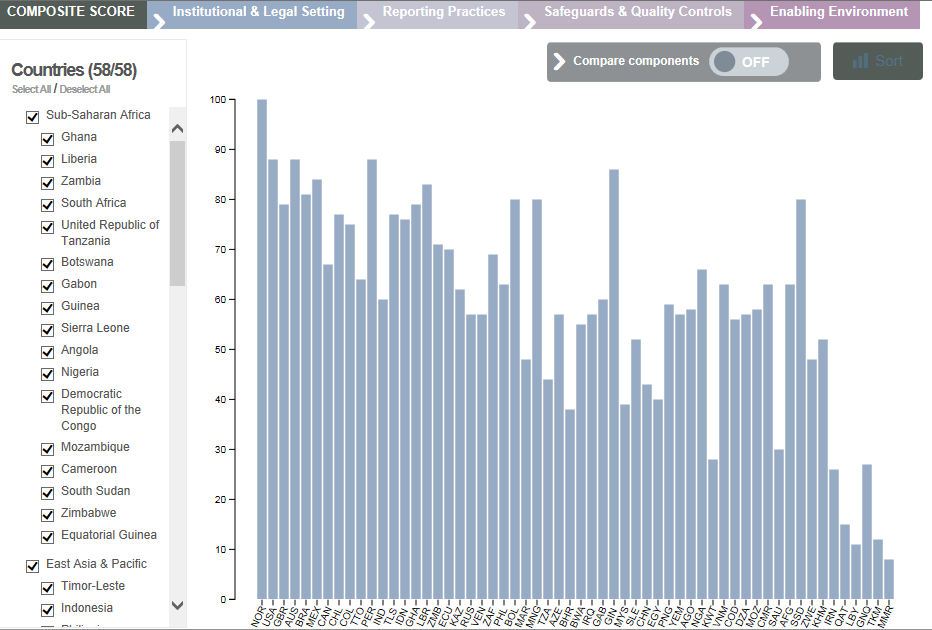
The Resource Governance Index: A Year of Impact, With More to Come
Just over a year ago, we broke new ground with the Resource Governance Index, or RGI, which measures transparency and accountability in the oil, gas and mining sectors of 58 countries. Since then, it has become one of the Natural Resource Governance Institute’s (NRGI) signature offerings; raised global awareness around the governance challenges in the extractive industries; and prompted reform in a number of resource-rich countries. Journalists, activists and industry players in dozens of countries have used the breadth of data in the index to diagnose governance successes and shortcomings. Now, more than a year after its launch, we’ve been reflecting on what the RGI has achieved.
At the global level, the African Development Bank references the RGI in its draft 2014-2018 Governance Strategic Framework and Action Plan as part of the criteria for evaluation of the impact of its natural resource management work. McKinsey Global Institute, McKinsey & Co.’s business and economics research arm, also incorporated the RGI into its country governance league tables, which aim at helping countries to better capture resource windfalls.
Governments have been compelled to improve their performance too. In Guinea, for instance, the national mining company SOGUIPAMI released a number of key documents, including agreements it has signed with private firms, with the explicit intention of improving its RGI score. In Mongolia, the ministry of mines has reached out to NRGI for advice on how to improve the governance of the country's mining sector, looking at specific indicators in the RGI.

The new and improved data tool in the Resource Governance Index
NRGI also actively sought to put the RGI into the hands of other practitioners in the field, and specifically targeted policymakers and accountability actors and civil society in developing, resource-rich countries. In Nigeria, the Extractive Industries Transparency Initiative multi-stakeholder group uses the RGI as evidence that the government is failing to implement the recommendations contained in its reports. In Mexico, the non-profit organization FUNDAR applied the RGI methodology to the mining sector to strengthen its Open Government Partnership recommendations and other advocacy efforts aimed at the new national government.
Farai Maguwu, executive director of Zimbabwe’s Centre for Natural Resource Governance (CNRG), recently told us that “the RGI changed the way CNRG tackles issues around transparency and accountability in Zimbabwe’s extractive sector, thanks to its detailed analysis underpinned by empirical research. Since the publication of the 2013 RGI report, CNRG has published over a dozen position papers and held conferences and press conferences all aimed at addressing the governance deficiencies unpacked by the RGI.”
The RGI website has generated more than 72,000 page views since its launch. We hope to see that number increase with new functions now available on the RGI data tool. Those conducting research around resource governance are now able to select, export, visualize and share countries’ performance on specific indicators. Users can also drill down through the information by exploring the questionnaires, with links to primary sources and country profiles. The RGI’s strength lies in this data that points the way to country-specific reform priorities.
To build on our successful approach to measuring resource governance, NRGI is now working on improving the methodology for the next iteration of the RGI, planned for 2015. We very much look forward to all-new data and engaging more with partners on research and the resulting advocacy.
Marie Lintzer is a governance policy analyst at NRGI.
